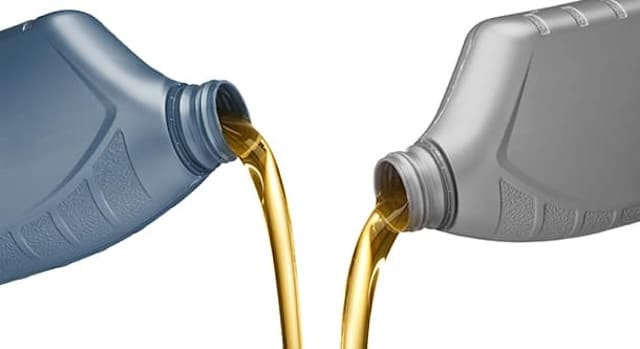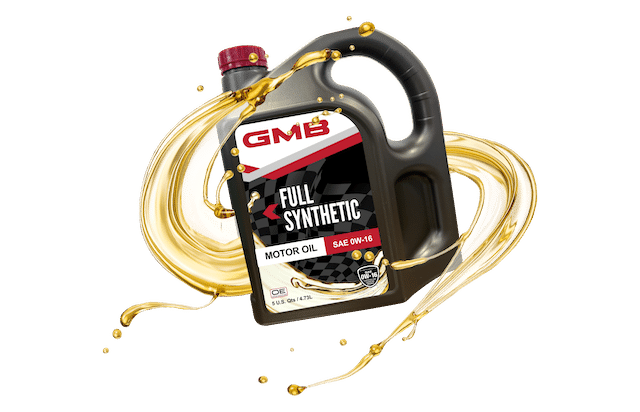What’s The Difference Between Regular And Synthetic Oil?
Explaining the differences between regular and synthetic oil to customers can be difficult. Especially without getting too technical. So, in this blog we cover some of the most commonly asked questions. And provide clear answers to help you guide your customer in the right direction.
Basic Differences Between Regular And Synthetic Oils

Regular Oil
- Derived from crude oil
- Mixture of base oils and additives
- Irregular molecular structure means less uniform performance
- More prone to viscosity breakdown in extreme situations
- Degrades faster, requiring more frequent oil changes
Synthetic Oil
- Chemically engineered from highly refined base oils and additives
- Designed to offer consistent performance even in extreme conditions
- Maintains stable viscosity at varying temperatures
- Extends oil change intervals as it is more resistant to contamination
Chack out this article for more information on what causes engine oil failure.
Can You Switch Between Regular and Synthetic Oil?
Yes. Many engines can use both types of oil. Always check with the vehicle manufacturer to confirm whether your vehicle can run on both regular and synthetic oils. Some engines require synthetic oil only. This is particularly true if the engine is turbocharged. It is important to completely drain the old oil and replace the oil filter when switching from regular to synthetic.
Synthetic oils tend to be thinner than regular oils. This improves oil flow but can also result in minor oil leaks on older cars with worn gaskets.
Does Synthetic Oil Require Fewer Oil Changes?

Synthetic oil generally requires less frequent oil changes compared to regular oil. This is due to its superior resistance to breakdown and contamination.
Frequent short trips, regular hard acceleration, and harsh weather conditions all degrade the engine oil faster. Synthetic oil can withstand these conditions better than regular oil. And advanced additives help it maintain viscosity and protect the engine. There are some tell-tale signs that mean your engine oil is at the end of its life. Check out our list of common engine oil related problems here.
Can I Use Synthetic Oil In Any Engine?
Synthetic oil is suitable for most engine types and can provide improved protection and performance. Older engines with worn seals and gaskets may experience minor oil leaks when switching to synthetic oil due to its higher flow rate.
If the engine is past its prime, it may also use more oil between changes due to the higher viscosity of synthetic oil. While some oil usage is expected on high-mileage engines, it is good practice to replace the seals and gaskets when switching to a synthetic oil.
Using a slightly thicker synthetic oil like our SAE 20W-50 grade can also help minimize oil leaks.
Use GMB Synthetic Oils For Complete Engine Protection

High-quality synthetic oils can help improve efficiency and performance. In both new and old vehicles.
Our fully synthetic oils are designed for year-round, all-season use and are available for all popular applications in both 5qt and 1qt containers. The GMB motor oil formula offers comprehensive engine protection even in extreme situations. And they meet or exceed stringent OEM specifications. Make sure to replace your oil filter with one that meets OEM requirements, too.
GMB has been an industry-leading manufacturer of OE and aftermarket automotive products since 1943. We supply OEM quality parts you can trust. And that’s why you can rely on us to provide the best quality oil for your vehicle. Contact GMB and order your high-quality engine oil today.
MORE CONTENT
Stay current!
Sign up here to get the latest news
and updates on all things GMB.
Sign Up To Receive GMB News & Updates!

